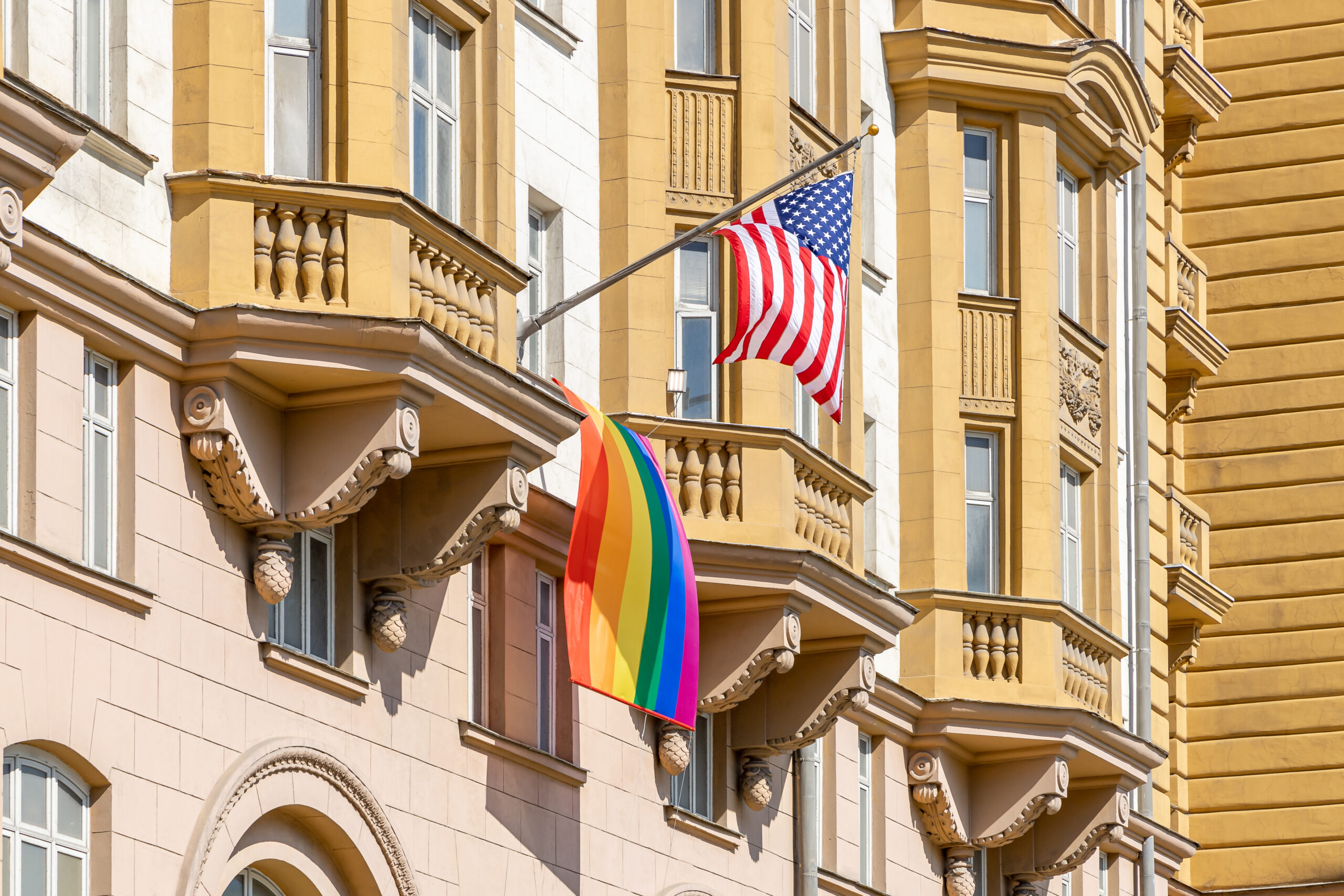American Values
Traditional values are not compatible with membership in the modern American empire.

Six months ago, the online journal Public Discourse, affiliated with Princeton’s Witherspoon Institute, published a piece by a Ukrainian writer arguing that Russian president Vladimir Putin was “weaponizing” traditional values. Russia claims to be fighting against the post-religious West’s moral anarchy; on the contrary, this writer says, Ukraine is a more traditional place than Russia according to polls of church attendance and religiosity. He concludes: “Ukraine demonstrates that ‘traditional values’ can be compatible with democracy and pro-Western policies.”
But is that really true? In theory, it ought to be. Being part of the democratic world should not mean signing up for every new addition to the increasingly multifarious American sexual cabinet of curiosities. Indeed, if the citizens of a country don’t want to enshrine the American sexual revolution in their laws, then preserving their right to make that choice is part of what democracy means.
In practice, that Ukrainian writer was wrong. Traditional values are not compatible with membership in the modern American empire, even if in theory they should be.
Here in the United States, where surreal fights over the latest trans insanity make gay marriage seem very far in the rearview mirror, it’s easy to forget how unusual gay marriage still is in the rest of the world. You find it in Europe, Latin America, the Anglosphere, and . . . Taiwan? It prevails in places where American influence is strong.
Gay rights have officially been part of the State Department’s human rights portfolio since 2011. The story of how that came to be, and how it persisted under President Donald Trump, is told in this month’s cover feature.
Subscribe Today
Get daily emails in your inbox
If sexual diversity is a hallmark of empires in decline, there is plenty of other evidence to support that diagnosis. Casey Chalk’s delightful essay describes a forgotten outpost of the American empire: the Panama Canal Zone.
This is the worst possible time for America to be going into decline, because the tectonic plates of geopolitics are shifting for the first time in a long while. Advances in technology have the power to change the shape of the globe—not just which countries are up or down, but what kinds of countries have the advantage. In a world where cheap drones matter more than hulking aircraft carriers, there will be more contenders for power and more leaders willing to throw the dice on an armed conflict. In short, the world is about to get more dangerous. Senior editor Sumantra Maitra offers a theoretically informed guide to what to expect.
After our empire falls, will people still be analyzing our cultural artifacts many centuries hence? Probably not. How amazing, then, that a new translation of Homer is still able to spark a conversation. Alas, in the case of Emily Wilson’s Iliad, this power comes from the translation’s sheer, brazen awfulness. TAC’s editorial fellow Stacey Kaliabakos continues this ancient conversation in this issue’s Arts & Letters.
Comments